
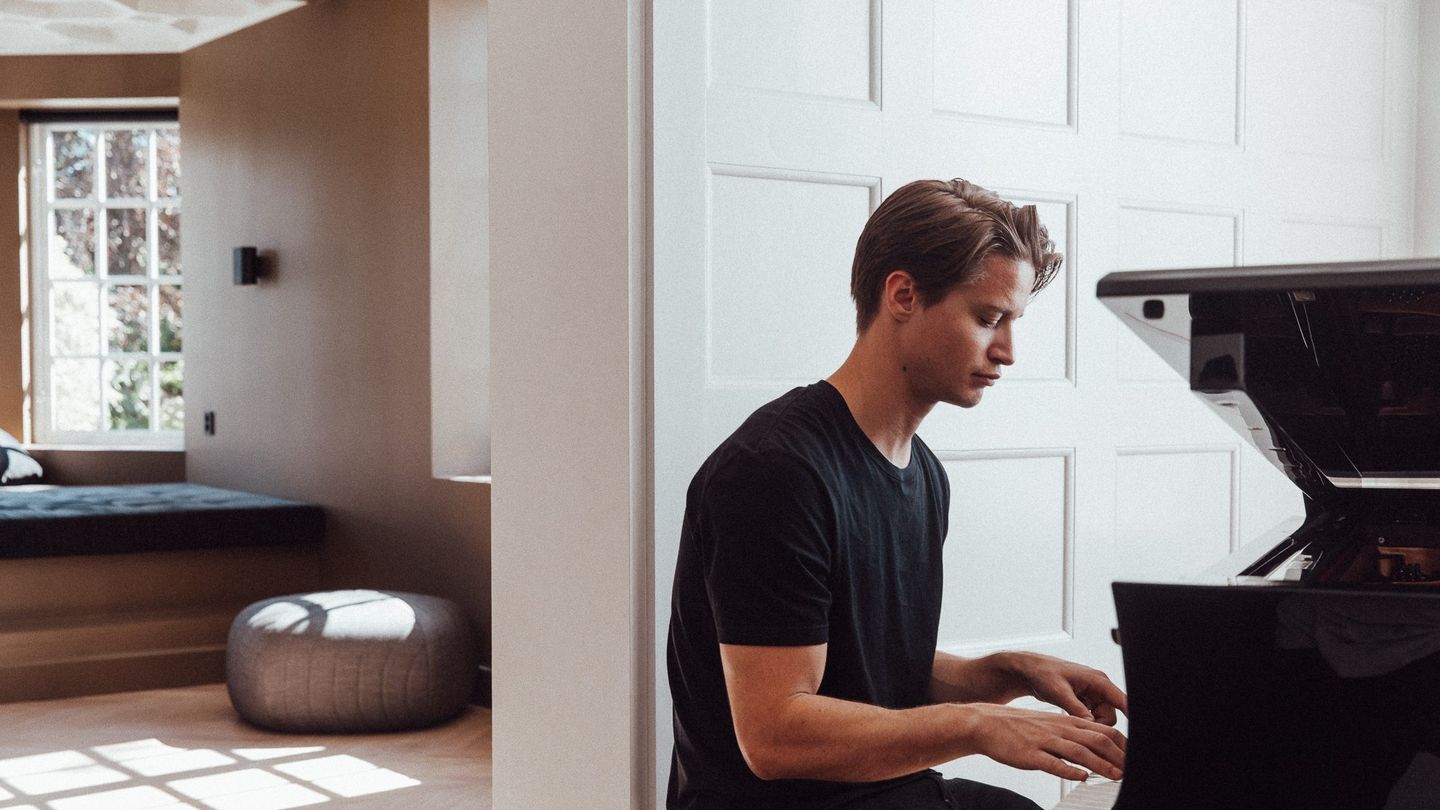
At home with Kygo
No concerts, no festivals, no crowds, no fun. But the Norwegian super producer is exactly where he wants to be.
Words: Joseph Bullmore
Photography: Johannes Lovund
Bergen is the rainiest city in Europe. Something to do with the mountains, I’m told, and the place’s proximity to the sea. Just the right amount of North Atlantic breeze; a nifty oceanic climate; perhaps a little orographic lift — and before you know it the heavens have torn open, the sky is black, and the road is a riverbed. It’s like that 270 days a year, on average. (Once, in 2006, it rained for 85 days straight.) Up to 3,000mm annually, they say. Forget cats and dogs. This place prefers buffalo and elephants. So you better get a hobby. And it better take place inside. And you really ought to be good at it.
Kygo moved here when he was one. He started playing the piano when he was six. He became the fastest artist ever to reach one billion streams when he was 24. Perhaps the 18 years of rainfall in between had something to do with it. All those hours of practice and perfection — that patient optimism and sense of occasion. However it happened, it’s a delicious irony that the chief pioneer of what is now known as ‘tropical house’ cannot leave his own without a scarf and a windbreaker. But to Kygo, the tropics are not so much a destination as a sound. You can conjure it all up now, in fact: some steel drums, a little faraway bongo; a lilting melody; perhaps some clever panpipes and a warm synth. A cold beer, a patch of grass; four friends, 7.15pm. “That’s what I imagine,” Kygo says about his songwriting process. “That’s the vision I have.”
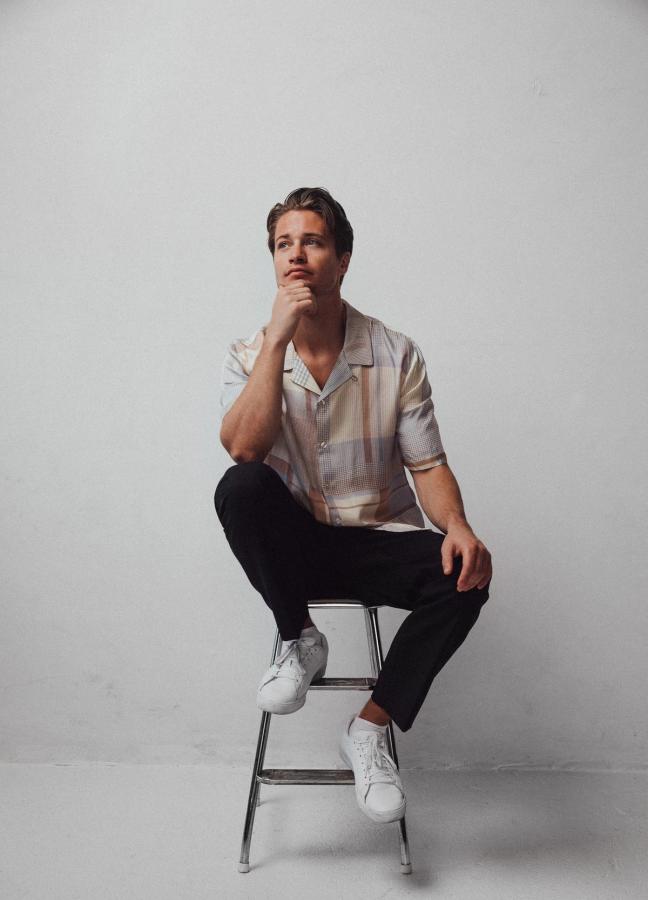
Well, we need it now more than ever. Trouble is, the kind of thing that Kyrre Gørvell-Dahll trades in is slightly off the cards this summer. Festivals are out, crowds are over, and the spontaneous displays of kissy affection that house music can encourage (okay, there might be other things at play as well) are things of the past. Usually, Kygo is on tour every summer, non-stop from April to September. Airport, stage, hotel; airport, stage, hotel. But this summer isn’t like the others — no shows, no screaming fans, no first class lounges — and the producer is now back at his home in Bergen.
And that, as it turns out, is exactly where he wants to be. I spoke to Kygo in mid-July, just after he had moved into a new house in the city. His new album, Golden Hour, had dropped a few weeks early to plenty of acclaim. It was a bright afternoon, and there was no furniture in the room yet, but he seemed completely at ease. He had just been playing tennis, and was planning another game that evening. This was the new normal. Not a cloud in sight.
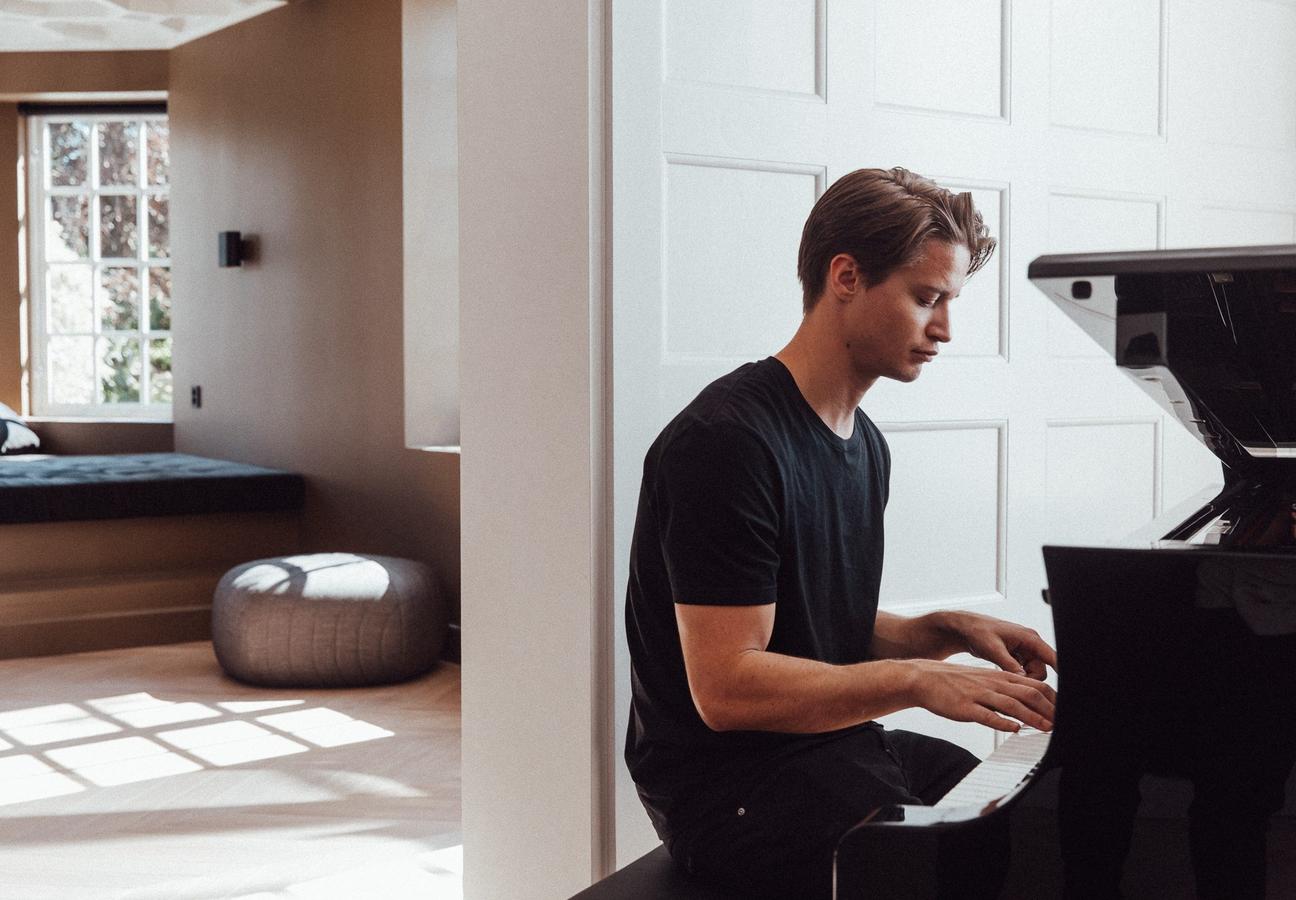
JB: How is Norway right now? How has lockdown been over there?
I think Norway has been doing pretty well. Now there’s no lockdown any more. We can gather 200 people at a maximum, and we’ve got to keep distance. It feels like it’s almost over now — but obviously that’s a dangerous thing to think. But Norway has been handling it pretty well.
This must be an odd summer for you in particular…
Yes. Every show has been cancelled. But I wasn’t planning on doing too many shows this year, in fact — because I wanted to spend some time back home. So to me it was sort of good timing. Obviously I haven’t been able to play the new album to anyone since it came out, so I haven’t been able to see the reaction…
What happens if no-one likes it!
Well, you never know! I did this online festival when I released the album, where I played a DJ set in front of the house. The response online was great. But I haven’t seen it with my own eyes yet.
Did that old lifestyle ever get tiring? All that jetting around the world?
Yes. My goal this year was to be home as much as possible. I do like to play shows, but my favourite thing to do is just to be back home, in the studio. Every summer for the last six years I’ve been travelling from April till September. So I’ve never been able to be at home in summer, which is the time you want to be home.
I’ve really enjoyed this stillness. It’s made me think. I might not tour that much in the future. I enjoy this balance. It got tiring before. I would rather play less shows and be excited to play each show, than play a show every day. The crowd has bought tickets to see me play. They want to be there. I feel like it’s not fair to the crowd if I don’t really want to be on that stage myself.
What was life like growing up?
I grew up in Bergen. I was born in Singapore actually. But my family moved here when I was one, and I’ve been living here ever since.
What were you like at school?
I’ve played piano since I was six. I’ve always been interested in music. My dad plays the piano as well, and he was always listening to music. But when I was younger, I was more interested in football.
Were you good at football? Could you have done something serious with it?
Probably not! I was okay. But I wasn’t playing at the top level. And when it got serious, that’s when I quit. When I was 12 I was dreaming of playing in the Premier League. But I quickly threw away that dream, and I just wanted to play to have fun. I didn’t want some coach on the sideline screaming at me if I made a mistake…
Were you academic?
I was in the middle somewhere. I wasn’t spending that much time reading for exams. I think I did okay! Not the best and not the worst.
And then you went to university in Edinburgh?
Yes, Heriot Watts. A business and finance degree. But that was just the back up plan. Because I really, really wanted to do music. That was the only thing in my head. But when I started studying I didn’t even have a Facebook page. I didn’t have anything. It was just a dream.
I basically didn’t go to school. I passed exams in the first year, but I just spent all my time making music. And luckily things started happening online. Halfway through my second year I had my first DJ show in Paris. And it was pretty hard for me to focus on school when things were actually happening. So that’s when I dropped out.
Well it’s worked out so far…
So far I’m happy. Hopefully I don’t have to go back to school!
What was the first moment you felt that it could be a career for you? What was the breakthrough.
That was probably during the second half of my second year at university. My Facebook page had close to 100,000 likes, and there was a lot of hype online. And then I got in touch with my now-manager, Miles. And we booked a tour in the US the next summer, which sold out. And that’s when I knew this was something I could do for a living.

What was the song that put you on the map?
I was releasing a new remix every month. And some of these remixes were doing pretty well. I did a remix of I See Fire by Ed Sheeran, and one of Sexual Healing that became pretty popular. And we were able to sell out a US tour with just these remixes, and the stuff that I had on SoundCloud.
When did you start to get recognised?
In the summer of 2014, I had a remix of a track called Younger, which was doing very well on the radio in Norway. It was played all the time, and I got a lot of interview requests. I got some newspapers, some TV stuff, and people started recognising me more and more.
And you were 23 years old. That’s young, isn’t it…
I guess so. But I was definitely ready for it at that point. I had been dreaming about if for four or five years. I’m glad I wasn’t younger. If I was 18 it might have been different — too fast. It felt like the right time for me.
Did you feel into any of the usual traps that very young, very successful people fall into?
I had a pretty good team around me. I felt like everything was done in the right way. I wanted it to become something more. I wasn’t really partying that much — I was focused on getting it to the next level all the time. I was always producing music. I was happy, but I wanted it to become something I could do for the rest of my life, and not just a year or two.
Miles, your manager, has obviously been hugely important to your success. What was he like when you were starting out together?
Miles was two years younger than me. When we started talking I was 22 and he was 20. He had just signed on other artists, but he had nothing to show me, really. But I just really felt his energy, and his enthusiasm when we were talking. He really wanted it. He had heard my music on SoundCloud, and loved all my stuff, and really wanted me to go to the next level.
He understood that music blogs were the way to go at that time, and he really understood how to promote music. He’s definitely an interesting character with a lot of energy and enthusiasm, and he always wants to take things further.
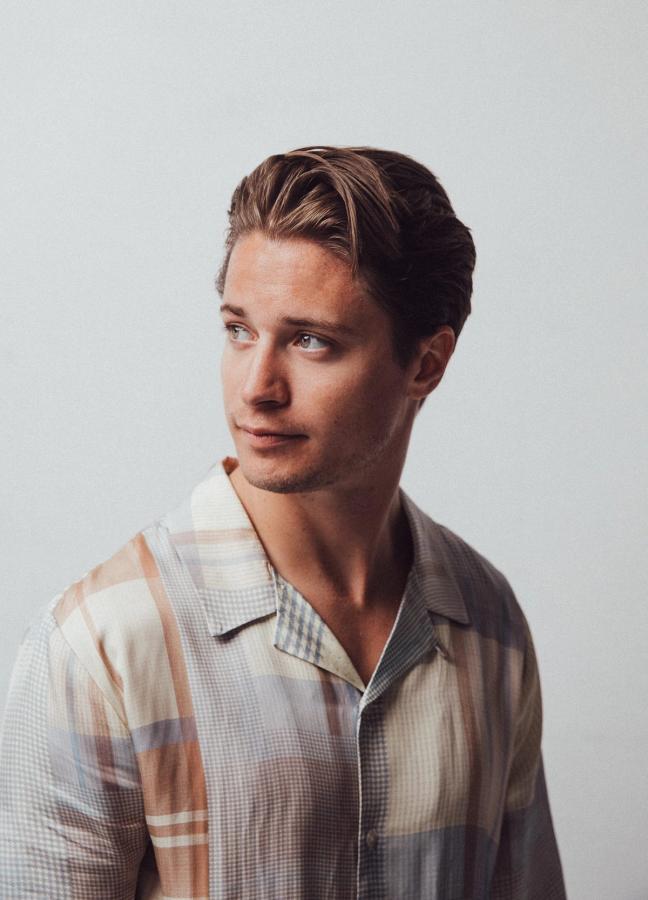
Are you a bit more conservative then?
Yes, I guess so! There were things we did at the beginning which I would never have done. I have a more Scandinavian way of being. But he is more American. The first big show I did in Oslo was right after the time I released Firestone, my first song. And he booked a 5,000 capacity venue in Oslo. And everyone said it would never work — we would never sell 5,000 tickets. But Miles said: “we’re definitely going to do it.” And we ended up selling it out. That’s his ballsy, American way of being.
What advice do you give to young people in the music industry today?
It’s hard, because things are changing so fast. The way that I did it would be impossible to do today. I was posting on SoundCloud, and I was doing some unofficial remixes. And now with copyright it’s way stricter — streaming is a different world to what it was even six years ago.
So I guess the advice is to focus on getting better at producing music. If you become good enough, and spend as much time as you can on the music, someone is going to hear it. And people are going to share it. It starts out with your friends. And then it keeps spreading. Try to find your own sound, too — don’t try to sound like everyone else out there, because you’ll just be a copy of someone else. Learn an instrument as well. It helps you understand music better.
What was your sound when you were starting out?
I had this melodic sound that was easy to recognise. I made a remix of the track Let Her Go by Passenger, and the response was way better than anything else I had done before. So I just kept using that sound.
When I make music, I’m always imagining people sitting on the grass, having a beer, relaxing in the sun. Or at the beach. That was my vision. After a while, people started calling it ‘tropical house’, which I guess was a good name for it. It speaks of that tropical setting.
Do you like that phrase now?
I like it. But I feel like every song that I make now, even if it’s not tropical house — no bongo drums, no steel drums — people will call it tropical house. My issue with that is that I don’t really want to be put in a box. I really just want to experiment and have fun in the studio.
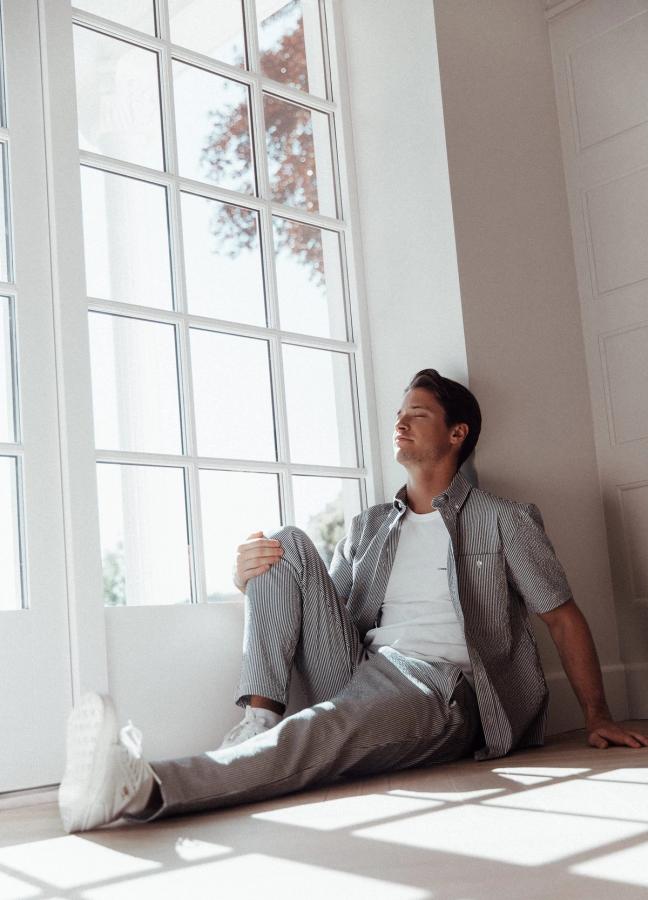
How do you know when a song is finished?
I just feel that it’s done. But at the point I think it’s done, I just keep listening to it, on repeat, for a week — maybe in the car, or when I’m at the gym. Suddenly I might notice something that needs to change. But at some point you’ve just got to say it’s finished.
What are you bored of in popular music?
I feel like there’s a lot of interesting stuff right now. But a lot of the hip hop that was coming out of the US in the last three years had a very similar sound — a lot of the auto tune stuff. And some Spanish stuff at the moment always seems to have the same beat — the kind of reggaeton beat that everyone started using. But I like now that there are a lot of disco influences. Dua Lipa did a disco album. Blinding Lights [by the Weeknd] is not really disco, but it’s got an eighties style to it. It sounds very similar to Take On Me [by Aha], if you know that song.
What’s your usual process for songwriting and collaboration?
I enjoy being back home. So unless I can fly people into Bergen, which is not the easiest place to fly people into, I usually go back and forth digitally with them. The songwriter can do their thing, and I can do mine. I like to produce alone. I don’t like to have people sitting around me when I produce a song. But I do some studio sessions as well, which is kind of like a band jamming. I play the piano, someone might play the guitar, we try to work out a melody, and then we take it from there.
Are there any people you haven’t worked with yet that you really want to?
I definitely want to make a song with The Weeknd. That’s been top of my list for a while. I’ve been speaking to him, but we’ve got to figure out the right song and really nail it. But I think it’s going to happen. We’ve been talking for a couple of years. We’ll see.
Do you ever get writer’s block?
Yeah. I only produce music when I feel like producing music. I don’t sit down at eight every morning, and work till four. If I’m feeling it I’ll work for 12 hours straight; and if I’m not feeling it I’ll take two, three, four days off, and not produce anything. That’s how it works. If I force myself to work on music, nothing special comes out of it.
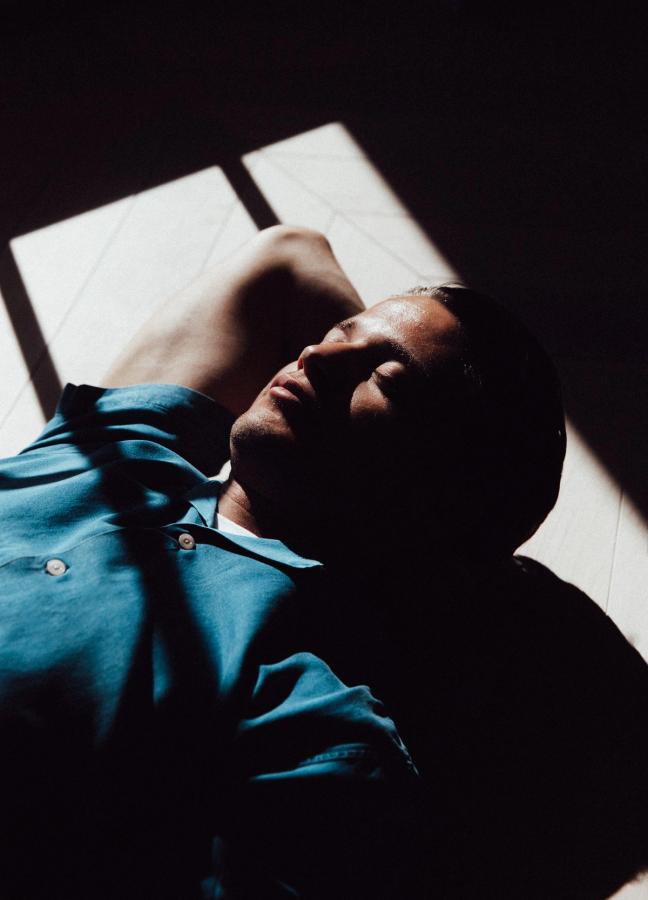
What do you do when you’re not making music?
This summer I’ve been playing tennis, hanging out with friends. Not really even thinking about music. I try to stay active and be social. Tennis is my new thing. I’ve really gotten into it. We’ve been playing a lot the last two ,three months.
Do you miss the energy of the live shows?
A little bit. I do think about it. But I’ve also enjoyed this time back home, and this lifestyle.
Do you still get nervous before live shows?
Yes, but it depends. I played a residency in Vegas for ten weeks. And after a while you don’t really get nervous. You’re used to it. But when it’s big festivals, I definitely get nervous. When I play a show, it’s all about the crowd. If it’s a good crowd, it’s a fun thing for me. If it’s a bad crowd, it’s not so much fun. There are some places, where you stand on stage, and you feel a different kind of energy. You get goosebumps just by standing up there.
What does it feel like having people sing your own song back to you?
When you get up on stage, and people sing back a song that you’ve just released, and they already know every single word — that’s a really special feeling. You forget about tiredness at those moments — you forget about everything.
More music: Sam Fischer is looking for his silver lining…
Become a Gentleman’s Journal member. Find out more here.


